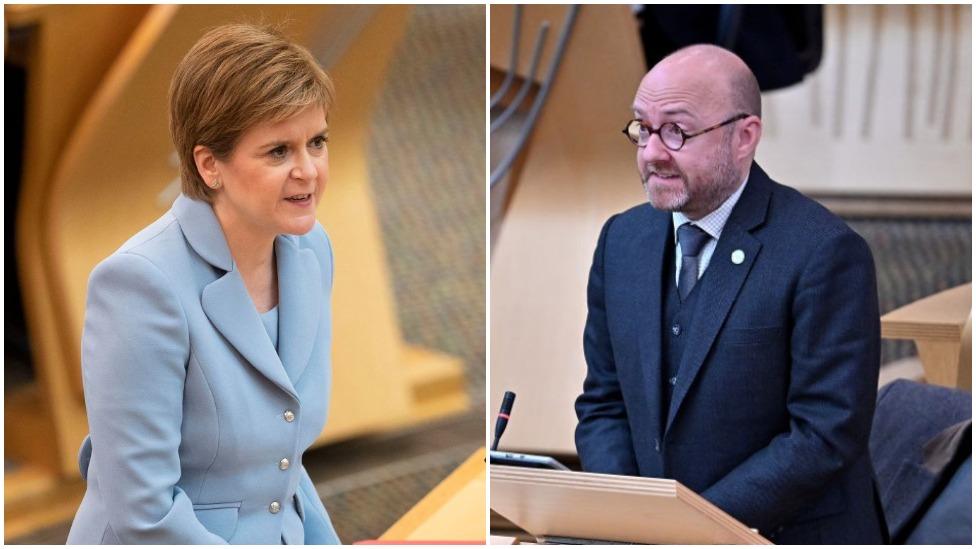Are Green MSPs set to join the SNP government?
- Published
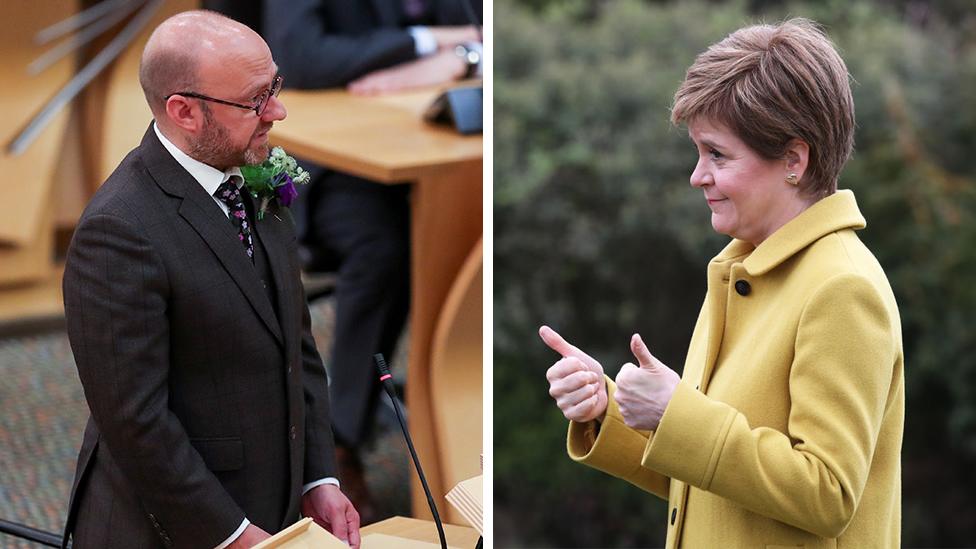
Could Green leaders like Patrick Harvie be joining Nicola Sturgeon's government?
Quietly over the summer, while much of Scotland is on holiday, a new Holyrood administration could take shape.
I say "new". It would still be led by Nicola Sturgeon and the SNP, after their fourth Scottish Parliament election win.
It might, however, expand to make room for the first ever Green party ministers anywhere in the UK.
The two parties are discussing a formal co-operation agreement that could take the Greens and some of their policy priorities into government.
This kind of partnership is not strictly necessary.
'Extra stability'
The SNP could govern on their own - with 64 of the 129 seats in parliament - seeking support from the Greens or others on an issue by issue basis. That's minority government. It's how the SNP operated in 2007-2011 and since 2016.
However, in the last parliament they were repeatedly outvoted by the combined strength of the opposition and had to make concessions to avoid losing confidence votes.
They did not enjoy the experience and as one government source put it, they are seeking "a degree of extra stability and policy certainty" this time.
That's what they had in 2011-2016 when they were able to form a majority government because they won enough SNP seats to get things done without relying on help from other parties.
Under Holyrood's proportional voting system, that's a very difficult outcome to repeat.
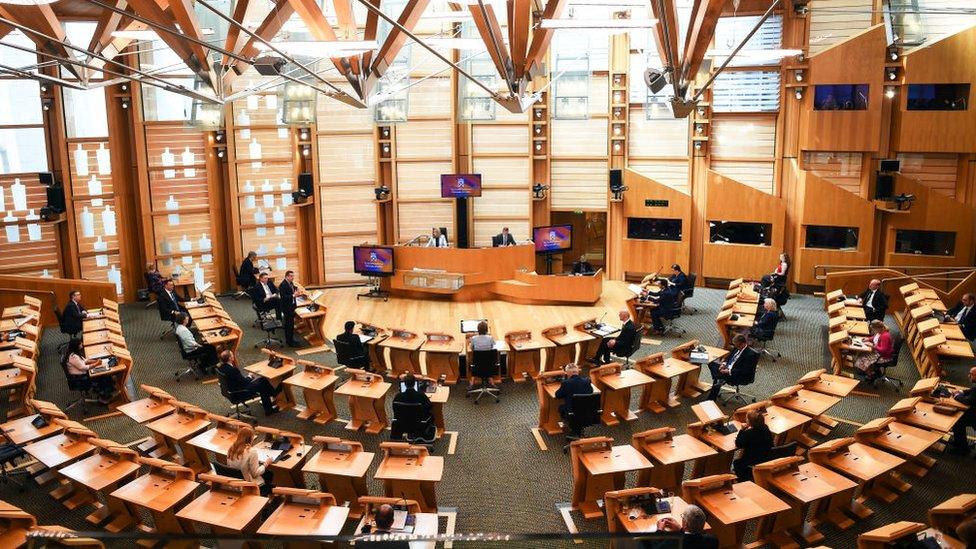
Nicola Sturgeon's SNP have 64 seats in the Holyrood chamber - one short of a majority
In the Scottish Parliament's first two terms, there was a coalition where two parties - Labour and the Liberal Democrats - negotiated an agreed programme and formed a majority government together.
The Conservatives and Liberal Democrats did the same at Westminster in 2010-2015 when David Cameron and Nick Clegg teamed up.
What is being considered now is something different - a partnership that falls short of a full coalition but goes beyond the confidence and supply arrangement the DUP made with Prime Minister Theresa May after 2017.
Under confidence and supply, the smaller party agrees to vote for the government's budget and to support it in confidence votes in exchange for concessions.
The SNP would certainly want that from the Greens, but both sides are also exploring what elements of a shared policy programme they could agree.
Their talks are now entering a new phase where individual SNP ministers are having more detailed policy conversations with the Greens.

Any deal would likely leave the Greens free to disagree with the SNP over topics such as the future of the oil and gas industry
The two sides have already picked six broad areas for discussion. These are Covid recovery, climate change and the constitution, plus public services, infrastructure and equality issues.
It is not hard to imagine them agreeing new measures to reduce carbon emissions or plans for another independence referendum - areas where they are already fairly close.
On some things, they are so far apart that compromise may prove impossible.
The SNP would probably struggle to accept Green plans for new wealth taxes, or to phase out open-cage fish farming which salmon producers say would have a "catastrophic effect" on their industry.
Similarly, the Greens are not likely to endorse the SNP's road-building programme, including dualling major routes such as the A9, or the party's continued commitment to oil and gas extraction.
According to Green co-leader Lorna Slater, they will remain a "constructive and vocal opposition" on those issues that are left out of any agreement.
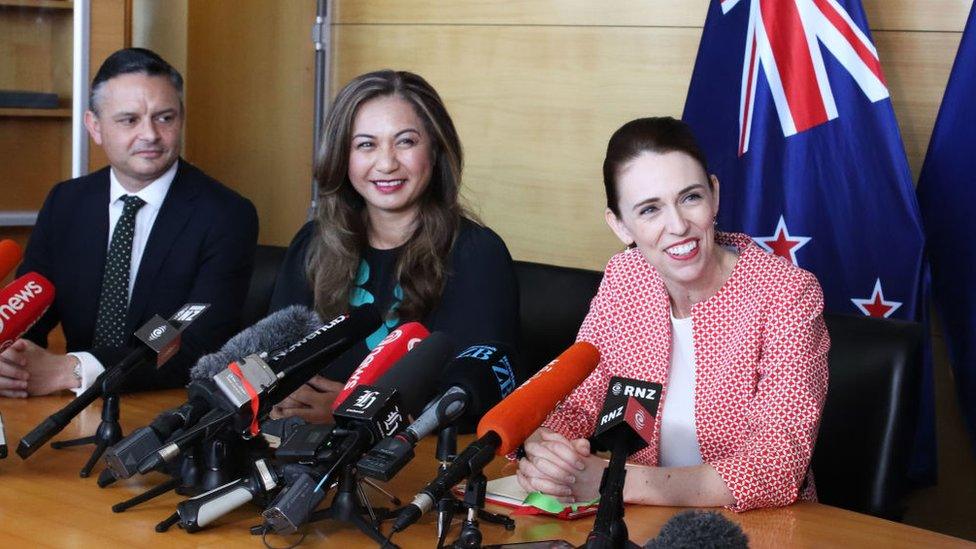
The Scottish Greens are taking advice from James Shaw - left - who is a Green government minister in New Zealand
The Greens have been taking advice from their sister party in New Zealand, which has a limited power-sharing arrangement with Jacinda Ardern's Labour.
The co-leader of the New Zealand Greens, James Shaw, has suggested they identify and deliver "three big ticket items" in any partnership to clearly "demonstrate the value of being in government".
That is how he thinks they can avoid the fate of a party like the Liberal Democrats, which suffered major election losses after their time in office with the Tories.
Mr Shaw is convinced the Greens can achieve far more in government than in opposition "despite its frustrations and constraints", and what he memorably described as "the dead rats that you have to swallow".
In short, there are bound to be decisions in government that the Greens would not like - but would have to put up with in order to retain power.
Some in the party have already suggested they should avoid a co-operation agreement with the SNP over differences in approach to transgender issues.
However, both parties are at a stage where they are looking for what they can agree rather than what they can't.
They're planning to keep talking over the summer to see what they can come up with by the time Holyrood returns from recess at the end of August.
If they reach a deal it could put Greens in government in time for the UN climate summit in Glasgow.
It could also guarantee the SNP the votes they need to get their law making plans through parliament, and reduce the influence of other larger opposition parties.
- Published24 June 2021
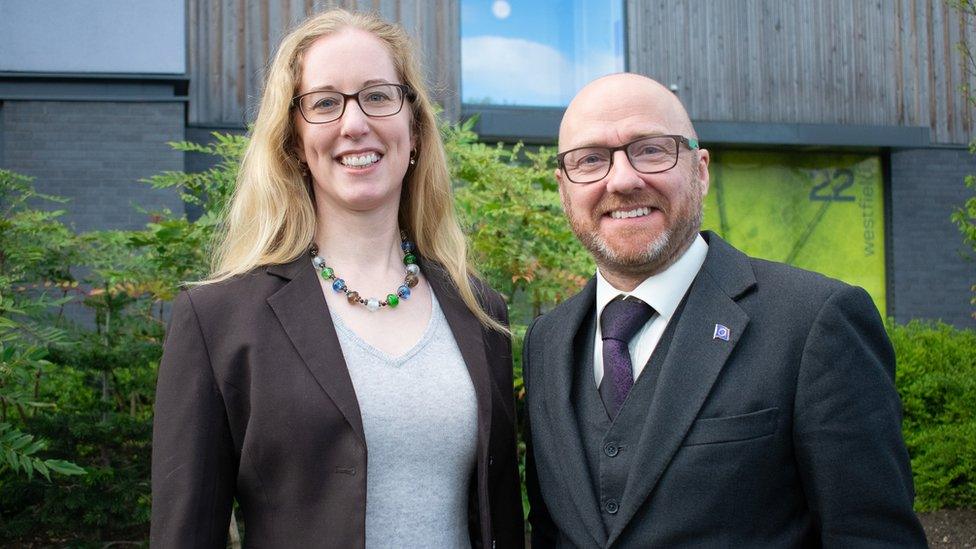
- Published26 May 2021
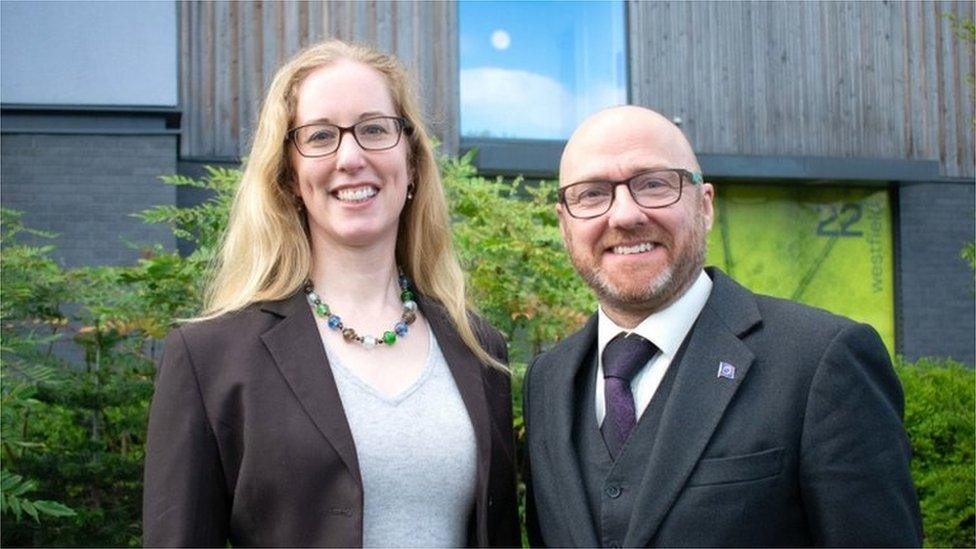
- Published26 May 2021
